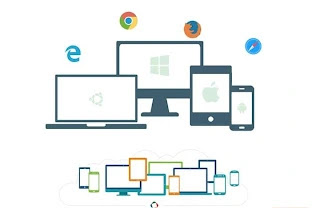Websites have come a long way since their inception, and their future looks even more promising. In this article, we’ll explore how people are likely to use websites in the future and what the future of websites may hold.
Websites have become an essential part of our daily lives, and as technology continues to advance, their role is likely to become even more significant. In this article, we’ll explore how people are likely to use websites in the future and what the future of websites may hold.
1. Personalized User Experience
Personalization is the future of websites. People will expect websites to provide them with a personalized user experience based on their interests, behaviors, and preferences. Websites will use data and artificial intelligence to deliver customized content and recommendations that are relevant to each user.
2. Artificial Intelligence
Artificial intelligence (AI) is already being used in various industries, and its impact on websites is likely to be significant. In the future, AI will be used to power chatbots, voice assistants, and recommendation engines on websites. AI will also be used to optimize website content for search engines and to improve website security.
3. Virtual Reality and Augmented Reality
Virtual reality (VR) and augmented reality (AR) are already transforming the way we experience content, and websites are likely to benefit from this technology in the future. Websites will be designed to provide immersive experiences using VR and AR, which will allow users to interact with products and services in a more engaging way.
4. Mobile Optimization
Mobile optimization has become essential in recent years, as more people access websites on their mobile devices. In the future, websites will be designed with mobile optimization in mind, and mobile-first design will become the norm. Websites will be optimized for faster loading times, better performance, and improved user experience on mobile devices.
5. Responsive Design
Responsive design is already a standard practice in website development, but its importance is likely to grow in the future. Websites will be designed to be responsive across multiple devices, including desktops, laptops, tablets, and smartphones. This will ensure that users have a consistent experience across all devices.
Conclusion
The future of websites looks bright, and people are likely to use them in more personalized, immersive, and engaging ways. Artificial intelligence, virtual reality, and augmented reality are likely to transform the way we experience websites, and mobile optimization and responsive design will continue to be essential for providing a seamless user experience across all devices. As website developers, it is crucial to stay abreast of the latest trends and technologies to ensure that our websites are future-proofed and provide the best possible user experience for our users.
Tags: Website Development, Website Design, User Experience, Artificial Intelligence, Virtual Reality, Augmented Reality, Mobile Optimization, Responsive Design





